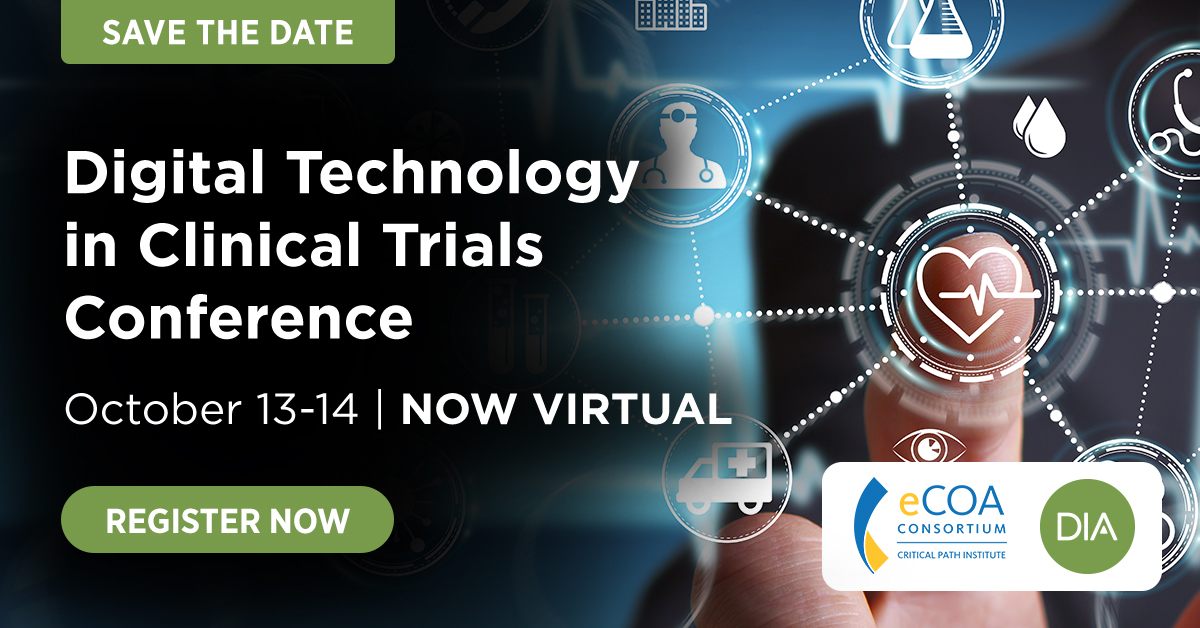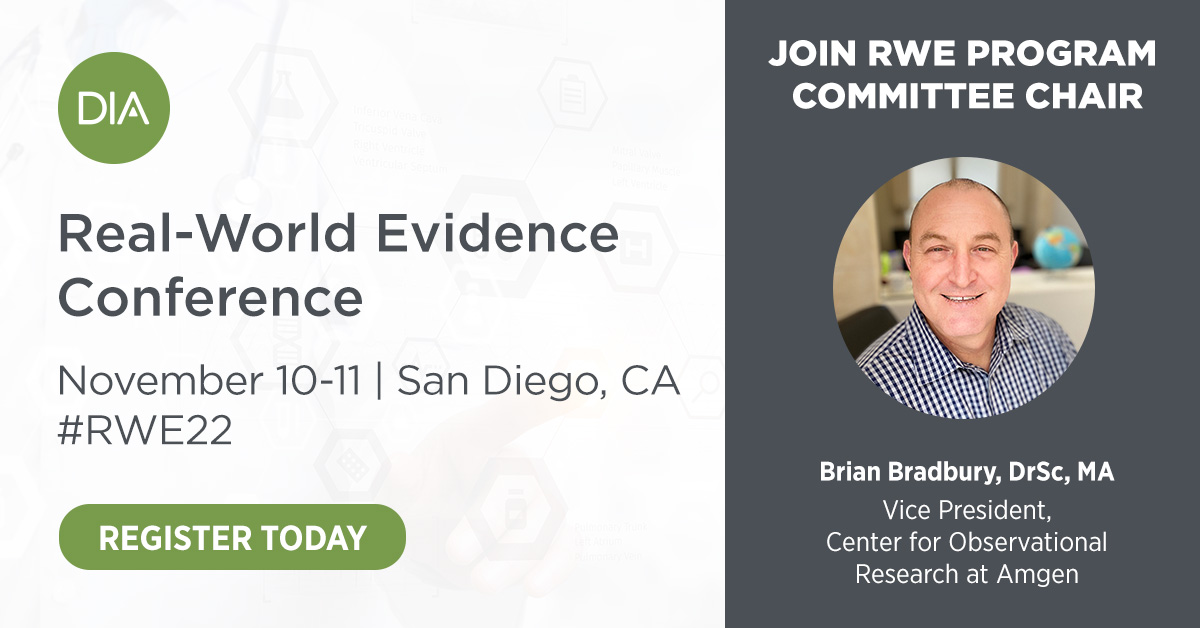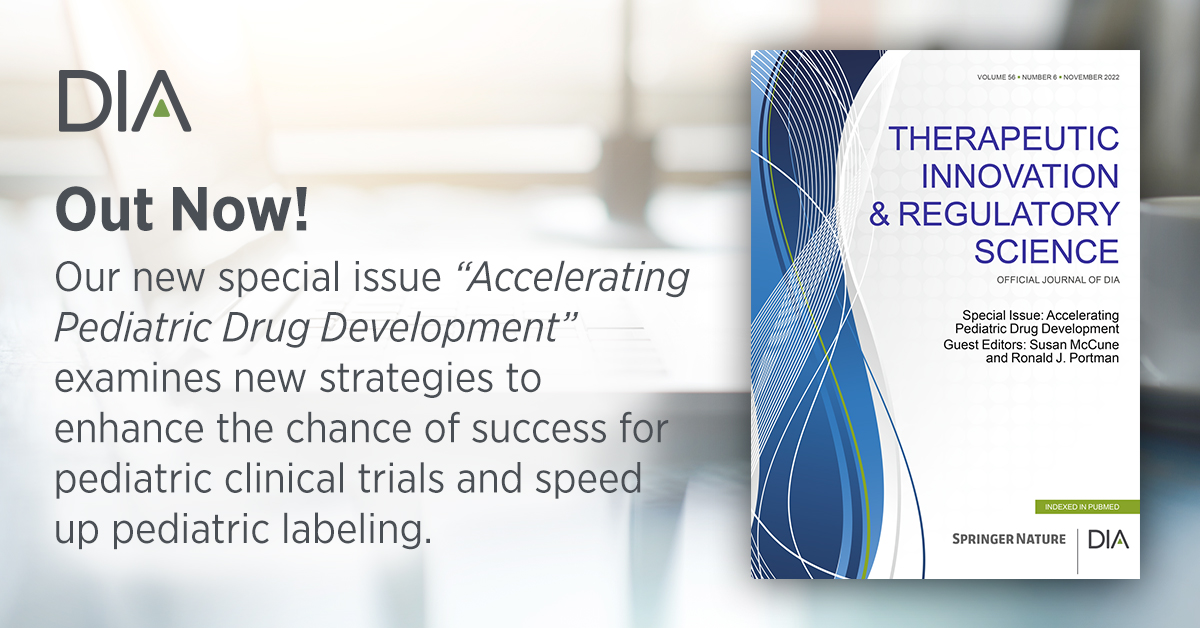Table of Contents
EXECUTIVE LEADERSHIP
Subscribe
Love Global Forum’s new online format? Subscribe today and never miss an issue.
Editorial Board
Content stream editors
Gary Kelloff US National Institutes of Health
Ilan Kirsch Adaptive Biotechnologies Corp.
regulatory science
Isaac Rodriguez-Chavez ICON plc
Patient engagement
Trishna Bharadia Patient Advocate and Media Contributor
Mary Stober Murray National Minority Quality Forum
Editorial Staff
Sandra Blumenrath, Managing Editor, Scientific Publications DIA Scientific Communications
Chris M. Slawecki, Senior Digital Copyeditor DIA Scientific Communications
Regional Editors
David Mukanga Bill and Melinda Gates Foundation
ASEAN
Jin Shun Sandoz
AUSTRALIA/NEW ZEALAND
Richard Day University of New South Wales, Medicine, St. Vincent’s Hospital
CHINA
Ling Su Shenyang Pharmaceutical University, Lilly Asia Ventures
Europe
Julie O’Brien Pfizer
INDIA
J. Vijay Venkatraman Oviya MedSafe
JAPAN
Ozawa Goshi Real Discovery Outdoors Co,. Ltd.
LATIN AMERICA
Cammilla Gomes Roche
USA
Ebony Dashiell-Aje BioMarin
Young Professionals Editor
DIA Membership
Bringing together stakeholders for the betterment of global health care.
he drug discovery and development field established over the years a range of in vitro and in vivo tools to model host-drug interactions and better estimate the pharmacodynamics (PD), pharmacokinetics (PK), and toxicity of drug candidates in humans. However, the microbiome’s role was generally ignored (see article in September Global Forum). The range of effects that the gut microbiome might have on administered drugs can produce unexpected outcomes on PK, PD, and toxicity. In turn, drugs may impact the gut microbiome and its interactions with the host cells (intestinal epithelial cells, immune cells, nerve cells, and enteroendocrine cells), perturbing normal body homeostasis. At the extreme end, such as with antibiotics, disruption to the microbiome can lead to dysbiosis and aggravate diseases.
Ellison Institute
@ellisoninst
icrophysiological systems (MPS) are platforms for in vitro modeling of a specific tissue or organ by exposing cells to a microenvironment that mimics the physiological aspects important for their function. Coupled with functional drug testing, MPS could contribute to the ongoing transformation of the drug-development process by recapitulating organ-level pathophysiology and clinical response. A major challenge lies in integrating multiscale, context-specific data to demonstrate the utility of these emerging technologies and establish context-of-use. Here, we highlight the current use of MPS for drug safety testing, suggest expansion to discovery and pre-clinical development of oncology drugs, and advocate for systematic data collection and data sharing for successful integration.
Dell Medical School, UT Austin
Apricity Health
egulators and drug developers are intensely focused on boosting diversity among clinical trial participants, in part because so many of the new precision oncology drugs prove less effective in real-world populations than they do in highly selected clinical trials. Many factors contribute to this loss of effectiveness in real-world care, and increasing diversity in clinical trial participation alone is necessary but insufficient.
n 2015, FDA approved the first biosimilar drug for the US market. Since then, the agency has approved 33 biosimilars, 21 of which were available commercially as of January 2022. By 4Q 2021, the number of compounds enrolled in FDA’s biosimilar biological product development program had reached 100. The momentum of biosimilar development is building, with development pathways evolving at different rates in different regions. That said, every sponsor will face important decisions along the way that will require careful consideration. This article discusses five of the most critical junctures in biosimilar development.
@MSDintheUK
OVID-19 pushed regulatory science and practices to new heights and brought stakeholders together in unprecedented ways to deliver safe and effective vaccines and medicines to patients in record time. While we cannot expect work to continue at this breakneck pace forever, some agilities proved themselves to be of significant value. To ensure that these regulatory lessons from the pandemic are not lost, it is critical to understand the impacts to and perspectives of stakeholders beyond regulators and industry. This article presents a brief summary of the discussions and conclusions of a multistakeholder workshop that allowed the understanding of diverse views on select agilities, which can inform if and how pandemic agilities are incorporated into routine agency practice.
Bezyl
ar too many cancer patients are not getting the treatment they need because they do not know about, do not have access to, or are not able to participate in a clinical trial. It is estimated that fewer than 5 percent of adult patients participate in clinical trials, and yet approximately 70 percent of cancer patients are willing to do so. This gap between participation rates and the willingness to participate is one the clinical research industry is dedicated to resolving.
- More sites need to be able to participate in research, especially in communities that are too far from academic institutions where most oncology clinical research is conducted.
- Clinical trial design needs to be reimagined to simplify patient participation and personalize their experience in a trial.
Shaping an Adaptable, Agile, and Sustainable Future for Patient Care
University of Cambridge
Newcastle University
Newcastle University
@THECFOM
he COVID-19 crisis forced substantial transformation upon healthcare systems; staff were rapidly repurposed, facilities and services were reconfigured, additional hospitals were created within days, and the fields of biomedicine and engineering advanced at unprecedented rates.
Meeting Highlights: DIA Global Annual Meeting 2022
Meeting Highlights from DIA Global Annual Meeting 2022
Meeting Highlights: DIA Global Annual Meeting 2022

s the end users of healthcare products, interventions, and related research, eliciting and incorporating patient preferences into clinical treatment and clinical trial design have become paramount in reconciling the different and often difficult trade-offs related to healthcare decision-making. Meaningful involvement of patients as active and equal research partners, through which they can formulate and express preferences resulting from their own cognition and experience, can be especially effective early in the healthcare product development lifecycle.
Around the Globe
@JanssenGlobal
hrough compassionate use programs (otherwise known as named patient programs or special access schemes), patients suffering from critical, life-threatening conditions can access potential life-saving therapeutic options which have not been formally approved by the responsible health authority in an ethical and regulated way. Many health authorities in Asia Pacific (AP) have defined the compassionate use of unapproved therapeutic products in their pharmaceutical acts or regulations so that medical practitioners can request, on behalf of their patients, the import of unapproved medicines for treatment.
Around the Globe
any of us can relate to the challenge of navigating regulatory agency websites, but there is good news from Australia’s Therapeutic Goods Administration (TGA). The TGA website has been redeveloped and was officially launched this past August 30 with subsequent improvements planned to continue over the next 12 months. There were over 46,000 documents on TGA’s previous website, so it was not surprising that finding information on it was challenging. Content from the previous version has been archived with the National Library of Australia web archives on a site called TROVE. In TROVE, you can find just about anything written about or from Australia. It also provides guidance about retrieving archived TGA documents. Nothing has been lost and everything can be found.
![]() Podcasts
Podcasts
China Sets New Record for Local Drug Approvals in 2021









